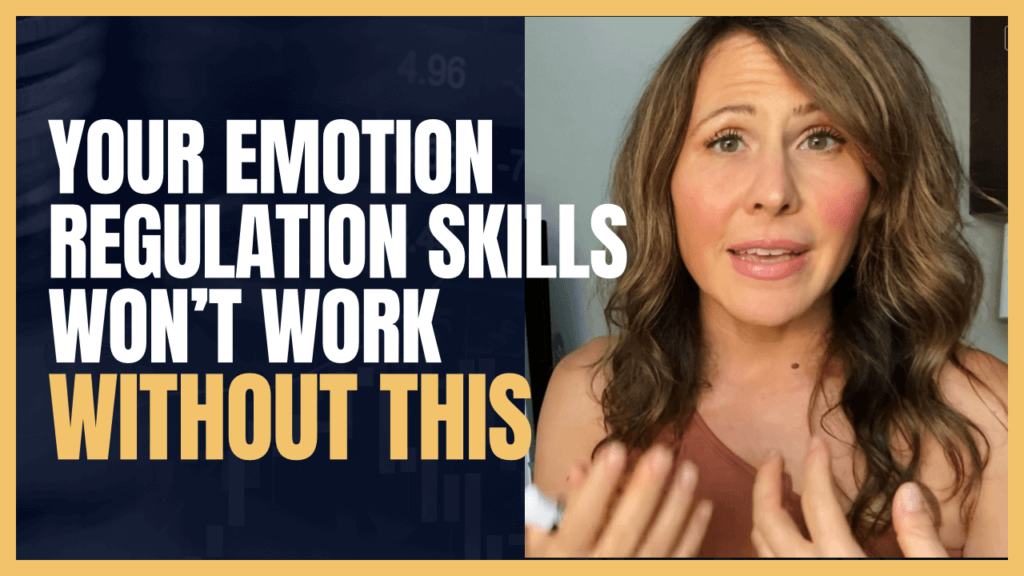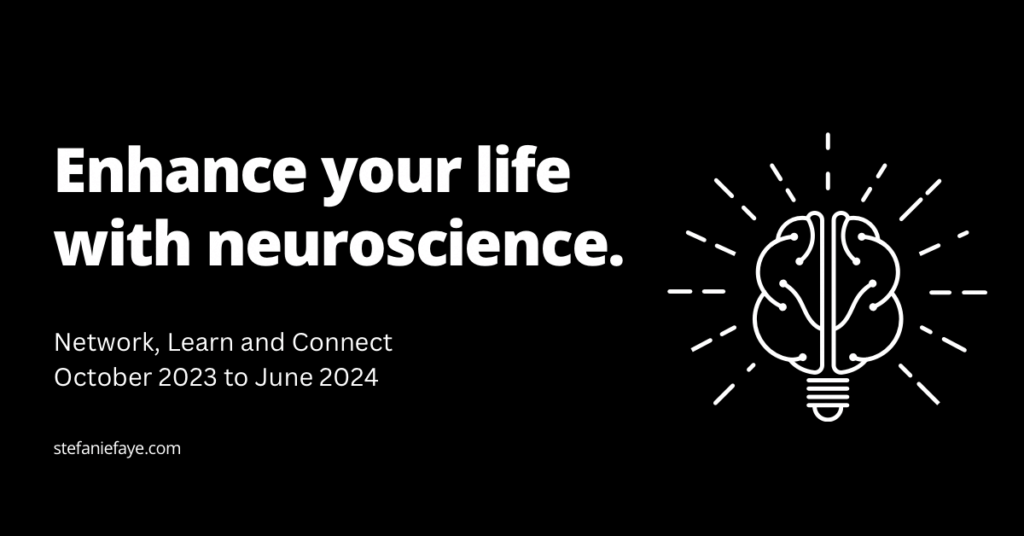
“You can't navigate well in an interconnected, feedback-dominated world unless you take your eyes off short-term events and look for long term behavior and structure.”
-Donella Meadows, Systems Thinking: A Primer
We all have emotion regulation strategies. We all have strategies for navigating stress and communicating with others.
The question is… are those actually working the way we want them to work? Are we achieving the state that we really want and the outcomes we really want?
Because we are energy-conserving creatures, our natural preference will generally lean towards doing things the way we’ve always done them, without questioning them. Perhaps we tend to approach challenges using only seriousness and negativity, aggression or condescending tones, passive strategies and avoidance, or positivity and optimism (which can misguided depending on the situation). Whatever our usual strategies are, generally speaking, we’ll continue to use them - even if they are not actually creating outcomes we really want.
As much as we may not want to take inventory, if we don't make some attempt to answer those questions, we risk repeating unwanted patterns in our relationships, behaviors and daily decision-making
To help us answer those questions, AND get better at not repeating behaviors that don’t serve us, a key strategy is to use feedback. Two key types of feedback are especially helpful.
I go into these two type of feedback in this video:
Internal Feedback
Internal feedback is about paying attention to our internal state. Is this conversation and its after-effects what I would like to create? Is this behavior or strategy leading me to an internal state that feels right to me?
For example, when you feel bored or anxious, perhaps you grab your phone and scroll through social media. Pay attention to your internal feedback. Tune in to how you feel during and after employing a this strategy. Do you feel motivated and energized afterward, or do you find yourself feeling worse? While some strategies may work in the short term, they might not be serving you if you use them all the time, or in automated ways, where you’re not tuning in to if they are having the effects you really want. By paying more attention to your internal feedback, you can get better at identifying which strategies truly align with your goals and desired outcomes.
Social Feedback
We also need to consider social feedback. Although we can’t control how others behave or react, we can evaluate how our own approach and decisions are influencing social interactions. By paying attention to the social feedback we receive, we can determine whether our actions and communication are creating the outcomes we desire. For example, if being overly serious during a conversation consistently leads to a negative spiral with someone, it might be worth trying a different strategy, such as incorporating humor or compassion. If you consistently choose the same time of day to approach someone (such as after work or first thing in the morning) and it’s not leading to positive outcomes, it could be helpful to try a different time. This doesn’t mean we need to constantly contort ourselves to try to get certain reactions from others, but paying attention to patterns within social feedback can help us experiment with making adjustments and seeing if that can lead to more desired outcomes.
Evaluation and Adaptiveness
There are also two key aspects to feedback that help us use it effectively: evaluation and adaptiveness [KATO2012].
Evaluation is about our sensitivity to discerning whether our strategies are bringing us closer to our goals and desired states. Are we achieving what we want? Are our strategies effective?
Adaptiveness is about a willingness and ability to cease, enhance, modify or implement a new strategy if the ones we are using aren’t leading to the external incomes and internal states we want to have.
Most strategies we use are unconscious and automated… but not actually effective
The idea of feedback may sound like a simplistic idea. It may seem obvious that we want to pay attention took to whether or not our strategies are working. But many of us use strategies unconsciously and automatically simply because we’ve always used them.
Maybe we’ve always used a serious approach when we talk to a certain person about a topic. Maybe we have always tried to initiate conversations within a certain relationship. Maybe we always use a certain type of behavior to self-soothe - but afterwards we feel less motivated and inspired.
We may not realize how repetitive we can be in our approach, and how these approaches haven’t really improved the situation or relationship. Being more intentional about evaluating and adapting may lead us to try fewer words, and more touch, affection or playfulness. Or lead us to try a different time of day, or start with a different topic that might create a new opening in a conversation that hasn’t been there before.
Without feedback, evaluation and adaptiveness, we risk repeating history.
Without evaluating whether our strategies are actually working, and a willingness to stop, change or enhance a strategy we are currently using, we risk falling into very repetitive patterns that don’t get us close to what we want. This can be extremely depleting of our energy. As uncomfortable as it can be to take inventory and be honest about what’s working or not, the only way to truly adapt and get better at mastering our strategies is by tuning into feedback and staying open to actually modifying our existing strategies or trying new ones.
References
Bonanno, G. A. (2001). The self-regulation of emotion. In T. J. Mayne & G. A. Bonanno (Eds.), Emotions: Current issues and future directions (pp. 251–285). New York, NY: Guilford Press.
Bonanno, G. A., & Burton, C. L. (2013) Regulatory flexibility: an individual differences perspective on coping and emotion regulation, Perspectives on Psychological Science
Kato, T. (2012). Development of the Coping Flexibility Scale: Evidence for the coping flexibility hypothesis. Journal of Counseling Psychology, 59, 262–273.
Sheppes, G., Scheibe, S., Suri, G., Radu, P., Blechert, J., & Gross, J. J. (2012). Emotion Regulation choice: A conceptual framework and supporting evidence. Journal of Experimental Psychology: General. Advance online publication. doi:10.1037/a0030831
Thayer, J. F. & Lane, R. D. (2009). Claude Bernard and the heart-brain connection: Further elaboration of a model of neurovisceral integration, Neuroscience and Biobehavioral Review, 33 (81-88).
JOIN THE NEXT ONLINE WORKSHOP!
October: Neuroplasticity and early childhood: How life experiences affect brain development and life trajectories
November: Emotion Regulation: Mastering our nervous system across the lifespan
December: Attachment and Affiliative hormones: how our drive to connect can impair or enhance our lives
January: Distortions and filters: Why communicating and understanding others is harder than we think
February: What are emotions? A look at appraisals and coping
March: Vibrational Beings: How others’ frequencies affect and reflect our hearts and minds
April: 'Use your words': How language helps us regulate
May: Empathy and Social Understanding: Dangers, myths and benefits
June: Relational resilience: How to use neuroscience to build thriving families, partnerships and communities.



